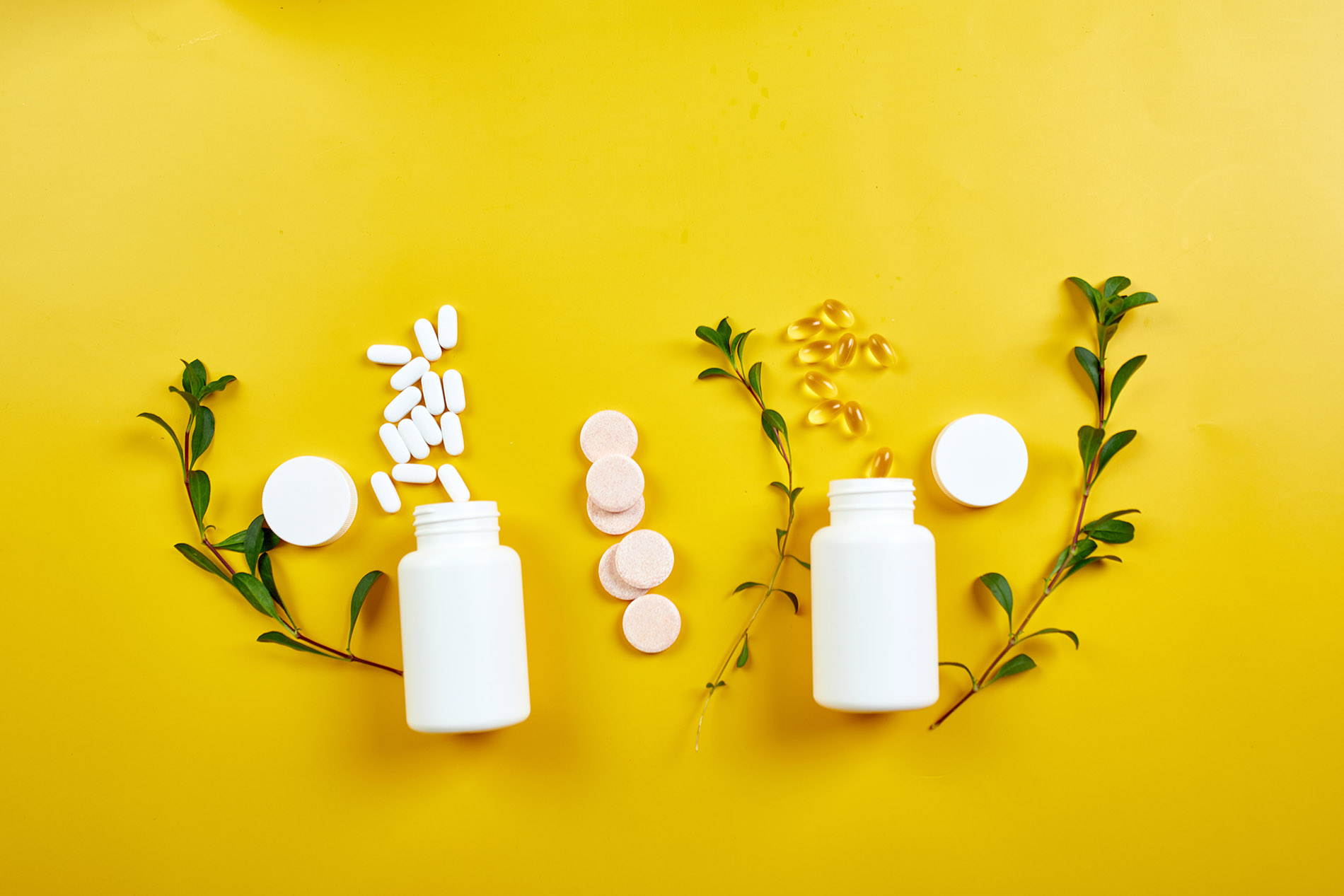
What Is a Dietary Supplement?
Dietary supplements are substances you might use to add nutrients to your diet or to lower your risk of health problems, like osteoporosis or arthritis. Dietary supplements come in the form of pills, capsules, powders, gel tabs, extracts, or liquids. They might contain vitamins, minerals, fiber, amino acids, herbs or other plants, or enzymes. Sometimes, the ingredients in dietary supplements are added to foods, including drinks. A doctor’s prescription is not needed to buy dietary supplements.
Should I Take a Dietary Supplement?
Eating a variety of healthy foods is the best way to get the nutrients you need. However, some people don’t get enough vitamins and minerals from their daily diet, and their doctors may recommend a supplement. Dietary supplements may provide nutrients that might be missing from your daily diet.
Talk with your doctor before taking any supplements. Some supplements can change how medicines you may already be taking will work. If your doctor recommends a dietary supplement for you, make sure you’re getting the brand recommended by the doctor and that you take it as directed.
Do you wonder if you need a dietary supplement? Maybe you do, but usually not. Ask yourself why you think you might want to take a dietary supplement. Are you concerned about getting enough nutrients? Is a friend, a neighbor, or someone on a commercial suggesting you take one? Some ads for dietary supplements in magazines, online, or on TV seem to promise that these supplements will make you feel better, keep you from getting sick, or even help you live longer. Often, there is little, if any, good scientific research supporting these claims. Supplements may cost a lot, could be harmful, or simply might not be helpful. Talk to your doctor or a registered dietitian for advice.
What If I’m Over 50?
People over age 50 may need more of some vitamins and minerals than younger adults do. Your doctor or a dietitian can tell you whether you need to change your diet or take a vitamin or mineral supplement to get enough of these:
- Calcium. Calcium works with vitamin D to keep bones strong at all ages. Bone loss can lead to fractures in both older women and men. Calcium is found in milk and milk products (fat-free or low-fat is best), canned fish with soft bones, dark-green leafy vegetables like kale, and foods with calcium added, like breakfast cereals.
- Vitamin D. Most people’s bodies make enough vitamin D if they are in the sun for 15 to 30 minutes at least twice a week. But, if you are older, you may not be able to get enough vitamin D that way. Try adding vitamin D-fortified milk and milk products, vitamin D-fortified cereals, and fatty fish to your diet, and/or use a vitamin D supplement.
- Vitamin B6. This vitamin is needed to form red blood cells. It is found in potatoes, bananas, chicken breasts, and fortified cereals.
- Vitamin B12.Vitamin B12 helps keep your red blood cells and nerves healthy. While older adults need just as much vitamin B12 as other adults, some have trouble absorbing the vitamin naturally found in food. If you have this problem, your doctor may recommend that you eat foods like fortified cereals that have this vitamin added, or use a B12 supplement.
Different Vitamin and Mineral Recommendations for People Over 50 (2015)
The Dietary Guidelines for Americans, 2015-2020 recommend how much of each vitamin and mineral men and women of different ages need. Sometimes, too much of a vitamin or mineral can be harmful. Most, if not all, of your daily vitamins and minerals should come from food.
Vitamin B12—2.4 mcg (micrograms) each day. If you are taking medicine for acid reflux, you might need a different form, which your healthcare provider can give you.
Calcium—Women over age 50 need 1,200 mg (milligrams) each day. Men need 1,000 mg between age 51 and 70 and 1,200 mg after 70, but not more than 2,000 mg a day.
Vitamin D—600 IU (International Units) for people age 51 to 70 and 800 IU for those over 70, but not more than 4,000 IU each day.
Vitamin B6—1.7 mg for men and 1.5 mg for women each day.
When thinking about whether you need more of a vitamin or mineral, think about how much of each nutrient you get from food and drinks, as well as from any supplements you take. Check with a doctor or dietitian to learn whether you need to supplement your diet.
What Are Antioxidants?
You might hear about antioxidants in the news. These are natural substances in food that might help protect you from some diseases. Here are some common sources of antioxidants that you should be sure to include in your diet:
- Beta-carotene—Fruits and vegetables that are either dark green or dark orange
- Selenium—Seafood, liver, meat, and grains
- Vitamin C—Citrus fruits, peppers, tomatoes, and berries
- Vitamin E—Wheat germ, nuts, sesame seeds, and canola, olive, and peanut oils
Right now, research results suggest that large doses of supplements with antioxidants will not prevent chronic diseases such as heart disease or diabetes. In fact, some studies have shown that taking large doses of some antioxidants could be harmful. Again, it is best to check with your doctor before taking a dietary supplement.
What About Herbal Supplements?
Herbal supplements are dietary supplements that come from plants.
A few that you may have heard of are gingko biloba, ginseng, echinacea, and black cohosh. Researchers are looking at using herbal supplements to prevent or treat some health problems. It’s too soon to know if herbal supplements are both safe and useful. But, studies of some have not shown benefits.
Are Dietary Supplements Safe?
Scientists are still working to answer this question. The U.S. Food and Drug Administration (FDA) checks prescription medicines, such as antibiotics or blood pressure medicines, to make sure they are safe and do what they promise. The same is true for over-the-counter drugs like pain and cold medicines.
The FDA does not have authority over dietary supplements in the same way it does prescription medicines. The Federal Government does not regularly test what is in dietary supplements, and companies are not required to share information on the safety of a dietary supplement with the FDA before they sell it. The companies are responsible for making sure the supplement is safe, but the FDA does not evaluate the safety of the product before the supplement is sold. So, just because you see a dietary supplement on a store shelf does not mean it is safe, that it does what the label says it will, or that it contains what the label says it contains.
If the FDA receives reports of possible problems with a supplement, it will issue warnings about products that are clearly unsafe. The FDA may also take these supplements off the market. The Federal Trade Commission looks into reports of ads that might misrepresent what dietary supplements do. A few private groups, such as the U.S. Pharmacopeia, NSF International, ConsumerLab.com, and the Natural Products Association, have their own “seals of approval” for dietary supplements. To get such a seal, products must be made by following good manufacturing procedures, must contain what is listed on the label, and must not have harmful levels of ingredients that don’t belong there, like lead.
What’s Best for Me?
If you are thinking about using dietary supplements:
- Learn. Find out as much as you can about any dietary supplement you might take. Talk with your doctor, your pharmacist, or a registered dietitian. A supplement that seemed to help your neighbor might not work for you. If you are reading fact sheets or checking websites, be aware of the source of the information. Could the writer or group profit from the sale of a particular supplement? Read more about choosing reliable health information websites.
- Remember. Just because something is said to be “natural” doesn’t mean it is safe or good for you. It could have side effects. It might make a medicine your doctor prescribed for you either weaker or stronger. It could also be harmful to you if you have certain medical conditions.
- Tell your doctor. He or she needs to know if you decide to use a dietary supplement. Do not diagnose or treat any health condition without first checking with your doctor. Learn how medications can interact with dietary supplements. For more information, visit the National Center for Complementary and Integrative Health.
- Buy wisely. Choose brands that your doctor, dietitian, or pharmacist recommend. Don’t buy dietary supplements with ingredients you don’t need. Don’t assume that more is better. It is possible to waste money on unneeded supplements.
- Check the science. Make sure any claim about a dietary supplement is based on scientific proof. The company making the dietary supplement should be able to send you information on the safety and/or effectiveness of the ingredients in a product, which you can then discuss with your doctor. Remember, if something sounds too good to be true, it probably is.
What Can I Do to Stay Healthy?
Pearl's Story
When she turned 60, Pearl decided she wanted to stay healthy and active as long as possible. She was careful about what she ate. She became more physically active. Now she takes a long, brisk walk three or four times a week. In bad weather, she joins the mall walkers at the local shopping mall. On nice days, Pearl works in her garden. When she was younger, Pearl stopped smoking and started using a seatbelt. She’s even learning how to use a computer to find healthy recipes. Last month, she turned 84 and danced at her granddaughter’s wedding!
Try following Pearl’s example—stick to a healthy diet, be physically active, keep your mind active, don’t smoke, see your doctor regularly, and, in most cases, only use dietary supplements suggested by your doctor or pharmacist.
Read about this topic in Spanish. Lea sobre este tema en español.
For More Information About Dietary Supplements
Office of Dietary Supplements
National Institutes of Health
301-435-2920
ods@nih.gov
www.ods.od.nih.gov
National Center for Complementary and Integrative Health
888-644-6226 (toll-free)
866-464-3615 (TTY/toll-free)
info@nccih.nih.gov
www.nccih.nih.gov
Department of Agriculture
Food and Nutrition Information Center
301-504-5414
FNIC@ars.usda.gov
www.nal.usda.gov/fnic
Federal Trade Commission
877-382-4357 (toll-free)
866-653-4261 (TTY/toll-free)
www.consumer.ftc.gov
U.S. Food and Drug Administration
Center for Food Safety and Applied Nutrition
888-723-3366
https://www.fda.gov/about-fda/office-foods-and-veterinary-medicine/center-food-safety-and-applied-nutrition-cfsan
MedlinePlus
National Library of Medicine
www.medlineplus.gov
This content is provided by the NIH National Institute on Aging (NIA). NIA scientists and other experts review this content to ensure it is accurate and up to date.




